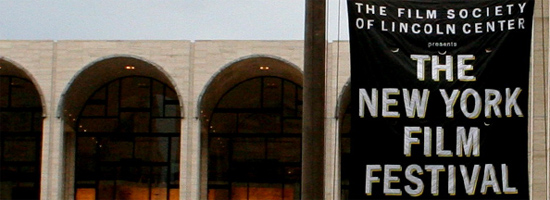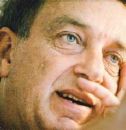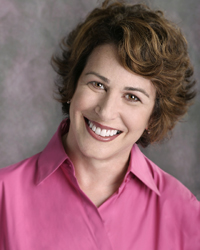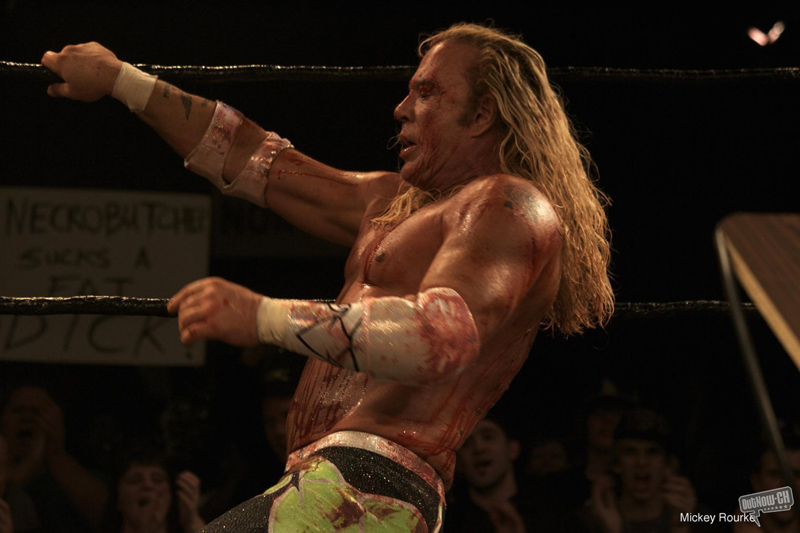|
|
||
|
Pro Tools
FILMFESTIVALS | 24/7 world wide coverageWelcome ! Enjoy the best of both worlds: Film & Festival News, exploring the best of the film festivals community. Launched in 1995, relentlessly connecting films to festivals, documenting and promoting festivals worldwide. Working on an upgrade soon. For collaboration, editorial contributions, or publicity, please send us an email here. User login |
A Dialogue With Stephen FrearsSunday, October 1----It would be hard to find a more entertaining guest for afternoon tea than the director Stephen Frears. His self-deprecating humor, off-kilter sensibility and ingratiating personality were in rousing form on Saturday afternoon, with the director participating in the first of three HBO Films Directors Dialogues at the New York Film Festival. For almost 90 minutes, Frears regaled his audience in a mix of interview and question and answer, moderated by New York Film Festival Selection Committee member and Entertainment Weekly film critic Lisa Schwarzbaum. Frears was in high spirits, still obviously overwhelmed by the enthusiastic response to his newest film THE QUEEN, which opened the Festival the night before. The film, which opened theatrically on Saturday, received mostly rapturous reviews, so Frears was in fine fiddle. A little background information....Frears began his career in the London theater, working various jobs at London's famed Royal Court Theater and serving as a personal assistant to actor Albert Finney. He moved into film in the late 1960s, working as assistant director to Karel Reisz in the landmark film MORGAN (1966) and Lindsay Anderson in the explosive IF (1969). He made his directorial debut in 1971 with the neo-noir detective thriller GUMSHOE, starring his former employer Albert Finney. In 1985, he directed a then unknown Daniel Day Lewis in the provocative drama MY BEAUTIFUL LAUNDRETTE, an adaptation of Hanif Kurieshi's bestseller about the cultural clash that ensues when a white punk (Lewis) falls in love with a Pakistani immigrant. The film was universally celebrated and ushered in a decade of remarkable UK films in what was dubbed the "new English cinema". Frears became a pivotal director in this movement, with such films as PRICK UP YOUR EARS (1987) and SAMMY AND ROSIE GET LAID (1988). His burgeoning international fame eventually brought him to Hollywood, where he distinguished himself with such films as the historic epic DANGEROUS LIAISONS (1988), THE GRIFTERS (1990) and HIGH FIDELITY (2000). However, Frears has continued making individualistic films in England with equal fervor, including the highly regarded THE VAN (1996), DIRTY PRETTY THINGS (2002) and last year's feel-good hit MRS. HENDERSON PRESENTS (2005), featuring sparkling performances by Dame Judi Dench and Bob Hoskins. Buzz on his latest effort, THE QUEEN, starring Helen Mirren as Queen Elizabeth II, has been building, with distributor Miramax Films positioning the film as a top contender for Oscar nominations this year. What follows are some entertaining excerpts from the Frears talk: Lisa Schwarzbaum (LS): What is your personal position on the monarchy and did it change after the experience of making the film THE QUEEN? Stephen Frears (SF): I've come to see that I am, in fact, a Queenist, if not a monarchist per se. I put the blame on this unexpected development at the feet of Helen Mirren. Who couldn't be enticed by such a queen? LS: How did you evolve the portrayal of the Queen? SF: All the contradictions in the character were already there, and that is what makes her such an interesting figure ripe for a cinematic exploration. The character is wrapped in the concept that the Queen is all about not expressing her feelings. We know this woman for almost 70 years, and yet we don't really know her at all. The more dull she is, the more riveting she is. That's the quality that we were striving for and that Helen brought out in the character. LS: Was there any consternation in showing the private life of the royals on the screen? SF: Surprisingly, showing the Queen in bed got a strong negative reaction from some people. In fact, we didn't only show her in her bed, but with hairpins and curlers in her hair! That got a reaction from critics and audiences in England, since we are just not used to thinking of the Queen in those terms. But in fact, the Queen is, in many ways, an ordinary woman of 70 years old, who does remarkably ordinary things, like wear hairpins and curlers and watch television. LS: How did the choice of Helen Mirren come about? SF: The producers who presented me with the story concept had worked with Helen on the PRIME SUSPECT series. They suggested her at first. I then met Helen and instantly thought that she would be perfect in the part. The only thing that we agreed to was that she could not glamorize the Queen, who is, God bless her, rather dowdy in her dress and manner. Helen hated the wardrobe but found a way to reach in deep into the character's sensibilities, in her sensible shoes. LS: What are your personal influences when you decide to take on a film project? SF: Well, I draw a lot from the tradition of the theater, since that is where I originally came from. What that has done to my perspective is to be very respectful of the writer, and that also draws me to character driven stories. I also have been influenced by the tradition in English theater and television that puts a light on class and social conflicts told through a contemporary story. That interests me greatly. LS: Is there any project that you have always wanted to do but so far have not done? SF: No, because I don't really work like that. I don't carry around ideas that I am longing to make into films. I am very lucky in that I have had great material offered to me and that has made up the bulk of films that I have been lucky enough to be involved with. The discussion was then opened up to audience members, who asked a number of intriguing questions. Audience Member: Did you have any constraints from the government or the royals in making this film? SF: We did not ask for their permission and neither did we need it. We did not shoot any of it on location, and just used other locations for Buckingham Palace or the estate at Balmoral. So, we never needed anyone's permission to tell this story or their guidance. Of course, the idea of making this kind of a tell-all film was rather impertinent, and I'm not sure how it will effect things for me in the future. Audience Member: One of the interesting side plots in the film is the complex character of Prince Charles, who is at the crossroads of a more open modernity but is still restricted by the traditions of the past. Would you be interested in making a kind of sequel that focuses on his tragic story? SF: Prince Charles is an amazingly contradictory person...in most ways a very privileged person, and in others the most underprivileged. He is caught between the traditions of the past and a modernity that is part of his own nature. He is a kind of tragic figure, who may never realize his desire to become King of England. I think that he is now the happiest he has been in years, after his marriage to Camilla Parker-Bowles, since it is the one time that he has actually stood up to his mother....a rebellion in his 50s. Audience Member: In retrospect, how would you have made the film differently if you had to start all over again? SF: I would have implicated the press and papparazzi more. They had their own agendas through the story, not just in the death of Princess Diana, but also in manipulating both the government of Tony Blair and the royal family. They created a wave of hysteria as a way of selling more newspapers, a publicity stunt which was completely insensitive to the facts and to the feelings of the family. Audience Member: Can you comment on the ups and downs of the British film industry? SF: Even though it has had a remarkable history, the truth is that it is a small industry because we have a small national audience. We need to find film subjects that can be exported around the world, and that puts us under alot of pressure to find new stories. No one had made a film about the Queen, so that was new. People around the world were effected by the death of Diana so there was immediate interest in that story. But it is hard to find new stories told with a British perspective that also speak to the rest of the world. We have, in effect, become a kind of third world country, begging for scraps at the table of the Hollywood industry. But I remain optimistic that there are strong talents that will keep the industry going for years to come.
01.10.2006 | NewYorkFilmFestival's blog Cat. : Albert Finney Ambiance Bob Hoskins British films Business Business Camilla Parker-Bowles Charles Cinema of the United Kingdom Cultural depictions of Tony Blair Daniel Day Lewis Diana Docudramas Elizabeth II Entertainment Entertainment Entertainment Weekly Entertainment Weekly Films Gumshoe Hanif Kurieshi HBO HBO Films Directors Dialogues Helen Mirren Helen Mirren High Fidelity HIGH FIDELITY Human Interest Human Interest Judi Dench Karel Reisz Labor Labor Law Law Lindsay Anderson Lisa Schwarzbaum Lisa Schwarzbaum London Miramax Films Neo-noir New York Film Festival NEW YORK FILM FESTIVAL Oscar PRICK UP YOUR EARS Sandy Mandelberger Stephen Frears Stephen Frears Stephen Frears Technology Technology the New York Film Festival The Queen Tony Blair United Kingdom Fest. circuit FESTIVALS PEOPLE
|
LinksThe Bulletin Board > The Bulletin Board Blog Following News Interview with EFM (Berlin) Director
Interview with IFTA Chairman (AFM)
Interview with Cannes Marche du Film Director
Filmfestivals.com dailies live coverage from > Live from India
Useful links for the indies: > Big files transfer
+ SUBSCRIBE to the weekly Newsletter DealsUser imagesAbout NewYorkFilmFestival New York Film Festival New York Film Festival Online Dailies coverage of the 44th NEW YORK FILM FESTIVAL September 29 – October 15, 2006 View my profile Send me a message The EditorUser contributions |





























.JPG)
.JPG)
.JPG)
.JPG)




